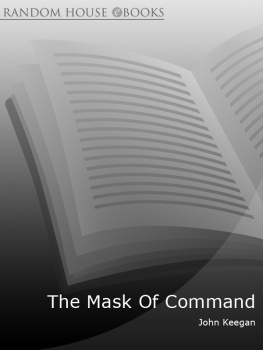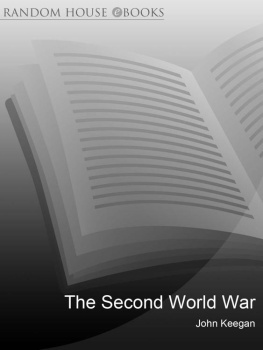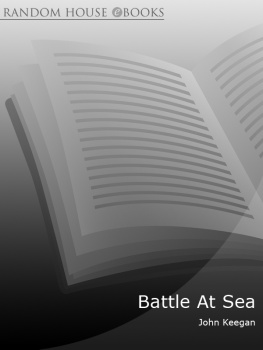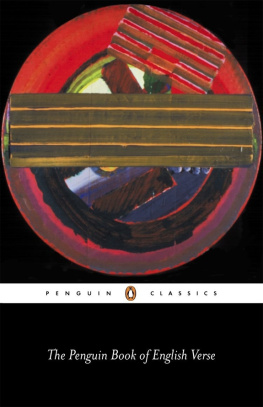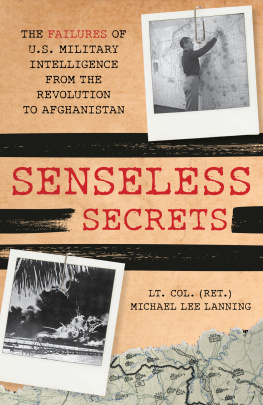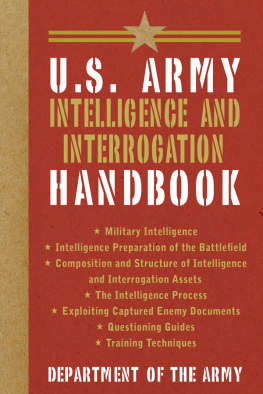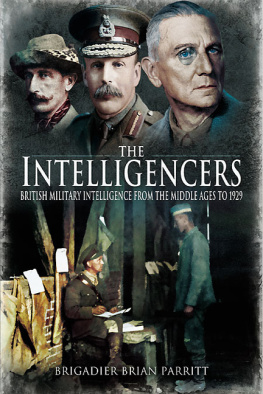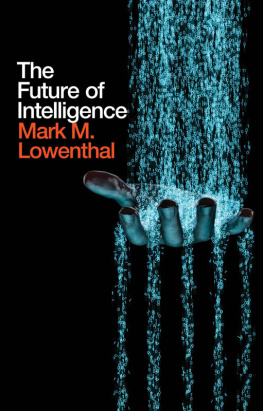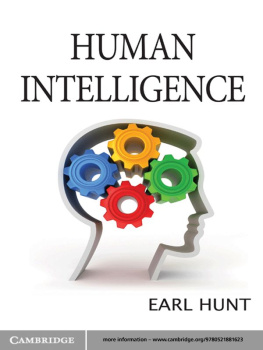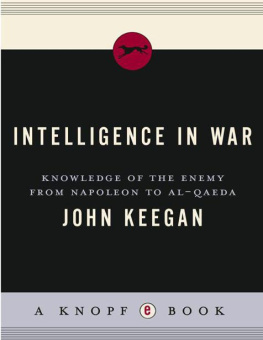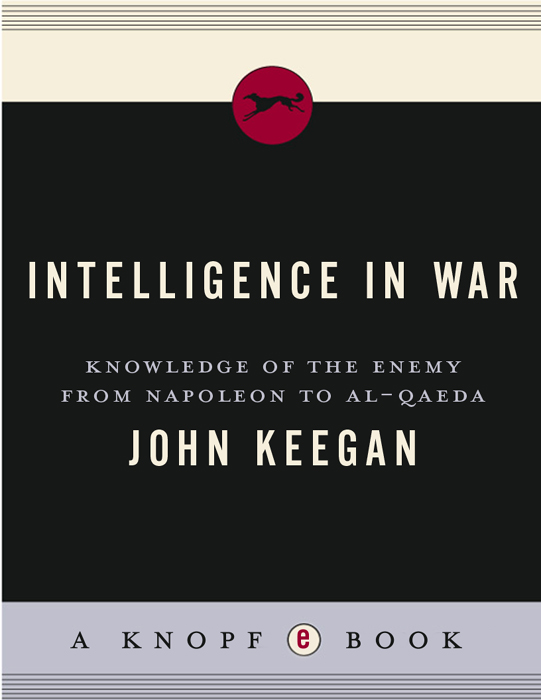
INTELLIGENCE IN WAR
KNOWLEDGE OF THE ENEMY FROM
NAPOLEON TO AL-QAEDA

JOHN KEEGAN

Alfred A. Knopf
New York 2003

CONTENTS

MAPS

Introduction
This book sets out to answer a simple question: how useful is intelligence in war? The volume of literature on the subject suggests that it is very important indeed. Shelves groan under the weight of books on the German Enigma machine, on the British code and cipher school at Bletchley Park that attacked Enigma, on the American unlocking of the Japanese ciphers, on the parallel deception operations which sought to delude the enemy, on the agents who risked their lives to help make deception work or to seek to discover the enemys secrets from within. The literature of fact is exceeded in bulk by that of fiction. The spy story became, in the twentieth century, one of the most popular of literary forms, and its masters, from John Buchan to John le Carr, grew rich and famous by their writing.
The climate created by the masters of spy fiction deeply affected popular attitudes to intelligence work. The sheer fascination of the techniques unveiled, in the use of cryptic writing, dead letter boxes, agent running, the turning of agents to become doubles, surveillance, interception and a dozen other practices of the secret world, had the effect of representing technique as an end in itself. The spy achieved the status of hero, or sometimes anti-hero, a mysterious and glamorous figure who was made to seem significant because of what he was rather than what he did.
It is notable that very few of even the most celebrated spy stories actually establish a connection between the spys activities and the purpose for which he presumably risks his life in the field. In Greenmantle, for example, John Buchans wonderful romance of intelligence work in Turkey during the First World War, it becomes impossible for the reader to discern at the end what exactly Sandy, as Greenmantle, has done: has he frustrated a Muslim jihad against Britain and her allies or, contrarily, has he himself become a Muslim prophet? In The Riddle of the Sands, the first serious novel of intelligence to appear and still one of the best, Erskine Childers subtly suggests how the Germans may mount an invasion of Britains east coast through the secret channels around the Friesian islands, but the dnouement of his tale does not demonstrate that his two patriotic yachtsmen actually cause the Admiralty to take appropriate precautions. In Kiplings marvellous Kim, ostensibly an unforgettable panorama of Indian life on the road but essentially a spy story, his hero does, unwittingly, help to frustrate a rising in one of the princely states, but the climax results in nothing more than his making fools of some Russian spies on the Himalayan border. In almost none of John le Carrs brilliantly convincing constructions of spy and counter-spy life does he show an objective outcome for what his characters do. They are fighting the Cold War; but, after all their intricate delusions and deceptions, the Cold War goes on.
The author might rightly say that he was representing reality; the Cold War thankfully did not have an outcome, certainly none in military terms, and it was the function of the intelligence services on both sides to see that it should not. They were playing a game, and the point was to keep the game going, not to win. No one would disagree with that or ought to complain, in the absence of a tangible result, that intelligence is a vacuous activity.
The intelligence services of all states originated, nonetheless, in the efforts to avert an enemys achieving a military advantage but to achieve military advantage in return. In peacetime, intelligence services may merely tick over. In war, they are supposed to bring victory. How effective are they? How do theyor how do they failto do it?
The novelists of intelligence have disseminated an enormous amount of information about intelligence techniques. Some of it is accurate, some is misleading. Few of them, however, even such writers who are as personally experienced in intelligence work as John le Carr, have set out in full the essential components and sequence of effective intelligence operations. That is understandable. Much intelligence practice is mundane and bureaucratic, unamenable to treatment in readable form. Even the most mundane, however, is essential if intelligence is to be useful. There are five fundamental stages.
1. Acquisition. Intelligence has to be found. It may be readily available in published but overlooked form. A former director of the CIA warned his analysts against what he called the Encyclopaedia Britannica factor: do not waste effort in seeking information which may freely be found in newspapers, scholarly journals or academic monographs. Stalins Russia took precautions to make information as difficult to acquire as possible, by restricting the distribution of such everyday material as telephone directories and street maps. As a general principle, however, it may be taken that information useful to an opponent is what may be called secret and has to be collected by clandestine means. The most usual methods are spying, in all its forms, now technically known as human intelligence or humint; by the interception of an opponents communication, which will probably require decryption, signal intelligence or signit; by visual surveillance or imaging, through photographic or sensory reconnaissance by aircraft or satellite.
2. Delivery. Intelligence once collected has to be sent to its potential user. Delivery is often the most difficult stage, particularly for the transmitter of humint. The humint agent may be watched, or may rightly fear overhearing or interception, or may be vulnerable to arrest at points of meeting. Moreover, the sender is always under the pressure of urgency. Intelligence goes stale or is overtaken by events. Unless sent in timely fashion, preferably in real time, which allows it to be acted upon, it loses its value.
3. Acceptance. Intelligence has to be believed. Agents who volunteer their services have to establish their credentials; they may be a plant. Ones own operatives may have been turned or may have fallen under the control of an opponents counter-espionage service. Even what they honestly offer may be wrong or only half true. Intercepts appear more dependable, but they may be bogus. Even if not, they can tell only part of the truth. Henry Stimson, American Secretary of State, rightly warned of the difference between reading a mans mail and reading his mind.
4. Interpretation. Most intelligence comes in scraps. For a complete canvas to be assembled, the scraps have to be pieced together into whole cloth. That often requires the effort of many experts, who will have difficulty in explaining to each other what they understand by individual clues and who will disagree over their relative importance. Ultimately the assembly of a complete picture may require a superior to make an inspired guess, which may or may not be correct.
Next page

